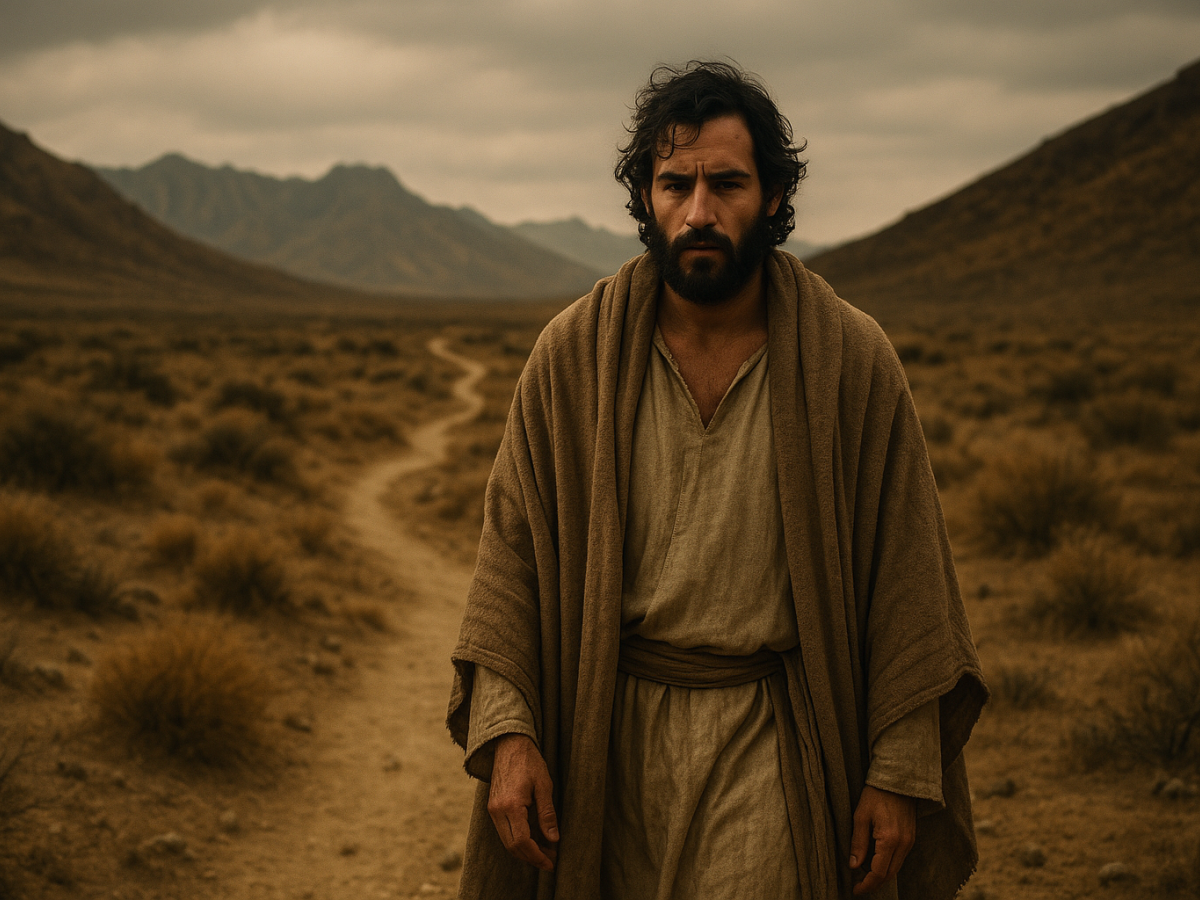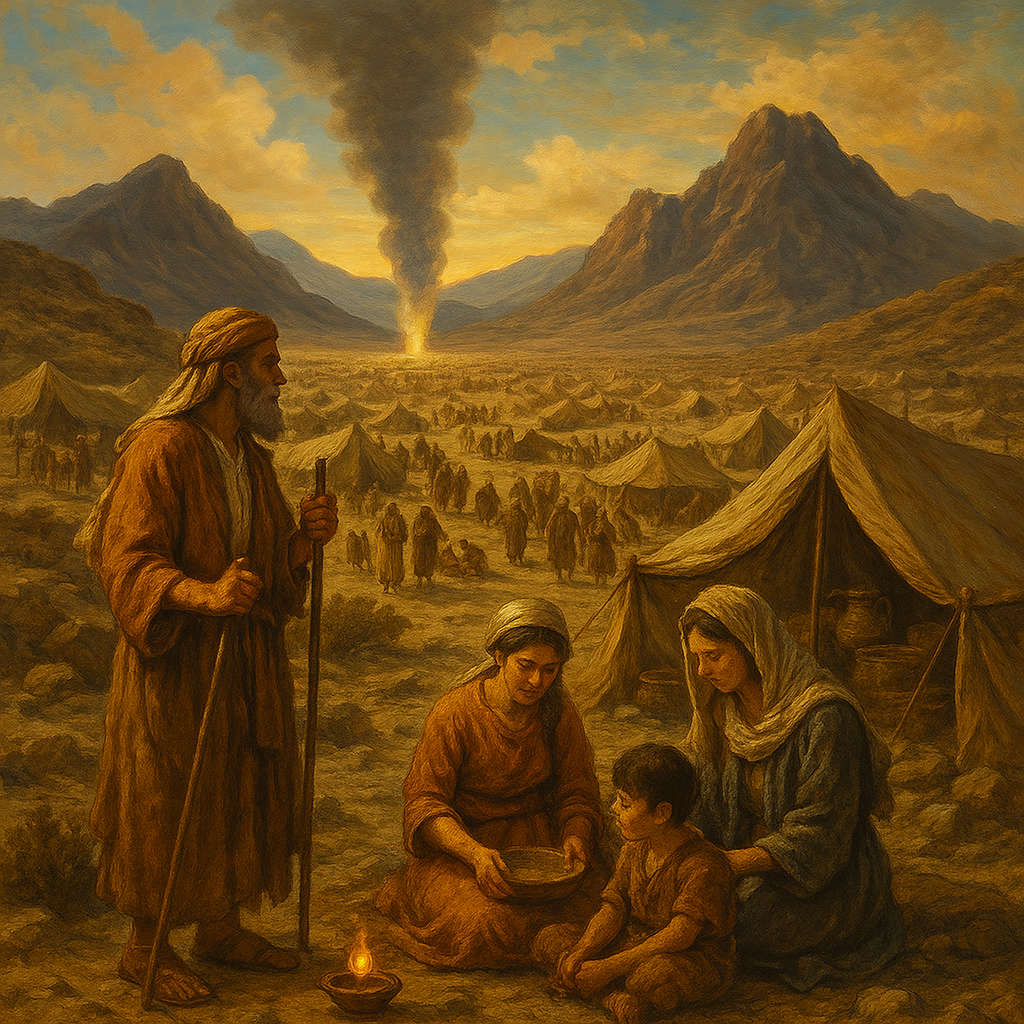
The Forty Two Wilderness Journeys & Forty-Two Generations
Did you know that the forty-two wilderness encampments in the Torah portion, Massei, line up with the forty two generations in Matthew’s genealogy of Yeshua? That is no accident. These are not two different stories. They are one story—woven together by the Spirit, meant to show us the great journey of God’s people from slavery to promise, from exile to home, from chaos to new creation.
The sages counted forty-two distinct encampments during Israel’s forty-year trek through the wilderness. Each stop was not random but commanded by God. Every resting place shaped Israel into a holy congregation, preparing them for the land of promise.
Think about those stations: from the chains of Egypt to the shelter of Sukkot, from the bitter waters of Marah to the refreshing springs of Elim, from the testing of Pi-Hahiroth to the very doorstep of the Promised Land at Dophkah. Each camp was part of Israel’s transformation. The wilderness became a spiritual classroom.
God stripped away the excesses of Egypt and the grip their idols had on Israel. He taught the generations contentment. He trained them to depend on Him alone for food, water, protection, and life itself. Yes, the journey was hard—snakes slithered in the dust, wild animals stalked the edges, hunger and thirst gnawed at them, the desolation of the desert pressed in. But every miracle reminded them that their survival came from His hand alone.
The forty-two encampments mark movement from chaos to order, from emptiness to fullness, from darkness to light. They echo creation itself, when God hovered over the formless void and spoke life into being.
The Forty-Two Generations
Matthew begins his Gospel with a genealogy structured in three sets of fourteen—a total of forty-two generations. From Abraham to David, from David to the exile, from the exile to the Messiah. This was deliberate. Just as Israel’s wilderness journey had forty-two stages, so too the unfolding of redemptive history finds its culmination in forty-two generations.
Abraham represents promise. David represents kingship. The exile represents the end of self-rule. And Yeshua represents fulfillment—the One who completes Israel’s journey and brings the story home.
The generations of Yeshua is not just a historical list. It is a declaration: history itself is a wilderness journey. Every generation marks an encampment, every name a step along the way, every life a thread in God’s grand design. And the destination is clear—the Messiah, the Son of God, the new Joshua who leads His people into the Promised Land of new creation.
Yeshua as Israel’s Fulfillment
Yeshua’s own life follows the same pattern as Israel’s. He passes through the waters at His baptism in the Jordan, just as Israel passed through the Reed Sea. His immersion marks the new entry point into God’s kingdom.
Then He is driven into the wilderness, where He faces the serpent, the Satan, the Pharaoh of this age. Where Israel failed in their testing, He overcomes—defeating the gods of empire not with armies but with faithfulness and the Word of God.
Then He ascends the mountain. Like Moses on Sinai, Yeshua goes up a mountain in Galilee, sits in authority, and delivers the Torah anew in the Sermon on the Mount. He presents Himself not just as a teacher but as God’s own voice on the mountain—the living Lawgiver, the divine Word made flesh.
The Outsiders in the Story in the Generations
And look at who Matthew chooses to highlight the generations in Yeshua’s line. He doesn’t just list kings and patriarchs as was common in that day. He includes five women in the generations—all wilderness figures in their own right. Tamar, Rahab, Ruth, Bathsheba, and Mary.
Each one lived through chaos, shame, or loss in a world stacked against them. Each one was an outsider—Gentiles, outcasts, sinners by reputation. And yet each was carried by God’s grace into the Biblical story of redemption. Matthew is showing us that the final encampment, the last of the generations, is not just about Israel. It is about the whole world. The Messiah comes to deliver all humanity.
That’s why this isn’t just history. It’s a modern story too. We are all on a journey, continually moving from chaos to order, from bondage to freedom, from exile to new creation. And like Israel, like Abraham, like Ruth, like Yeshua Himself, we face storms along the way.
Storms expose us. They strip away what is comfortable and show us what really matters. Recently in Texas, floods devastated entire communities. Whole families were swept away in moments. Children left orphaned, neighborhoods washed into ruin. The stories were unbearable—funerals where three and four family members were mourned at once. Homes became watery graves.
And yet, in the chaos, light broke through. Volunteers like the Cajun Navy risked their lives to rescue strangers. Firefighters, police officers, and ordinary neighbors worked without rest to comfort the grieving and save the stranded. The storm exposed devastation—but it also revealed courage, compassion, and selflessness.
Every storm asks the same question: How will you respond?
And the Bible is full of storm stories. Abraham faced famine and dislocation. David endured betrayal from his own son. Ruth lost her husband and chose exile with her mother-in-law. Their storms shaped them—not by what happened, but by how they responded.
Abraham built altars and called on the name of the Lord. David poured out his heart in psalms of lament and trust. Ruth clung to Naomi with loyalty and courage, choosing faith over bitterness. None of them were perfect. Abraham lied to save himself. David committed adultery and murder. Ruth was of the Moabite generations, descended from a people Israel despised. But God worked through them—not because they were flawless, but because they turned to Him in the storm.
That is the real test. Not the storm itself, but our response to it. Will we let the chaos define us? Or will we submit to God and let Him shape us into people of faith?
Our Journey to New Creation
The forty two encampments of Israel and the forty-two generations of Matthew remind us that our lives are not random. Every step, every trial, every storm, every victory is part of God’s redemptive design. He is leading us somewhere.
The wilderness still teaches us today. It teaches us to live with contentment, to depend on God, to be generous, to value heaven over earth. It teaches us that storms will come—but storms are never the end. The end is new creation.
The forty-two encampments and the forty-two generations tell us that history is marching toward redemption. And the question for us is the same as it was for Israel, the same as it was for Abraham, David, Ruth, and the disciples: How will we respond to the storm?
Because in the end, the only thing we carry through the wilderness is not our wealth, not our success, not even our survival. What we carry is our character, our faith, and the way we treated others when the waters rose.


Leave a Reply